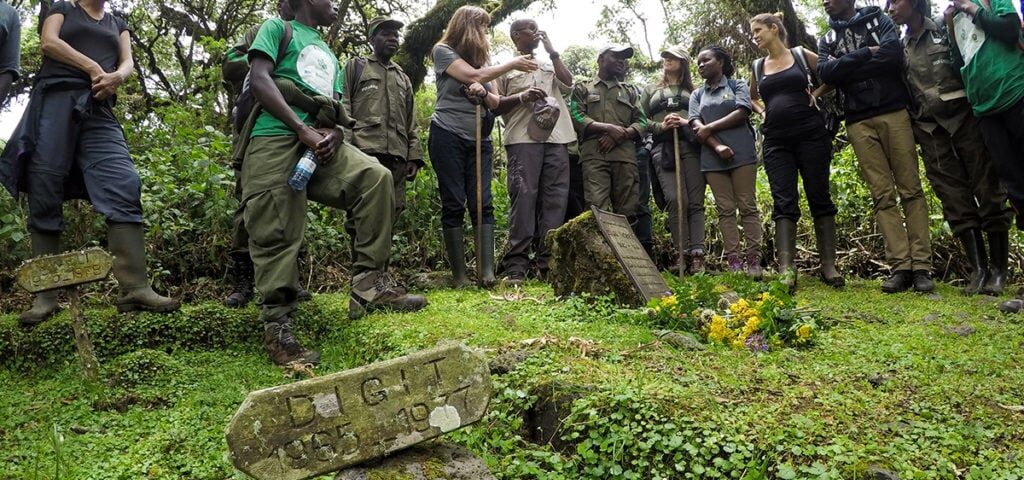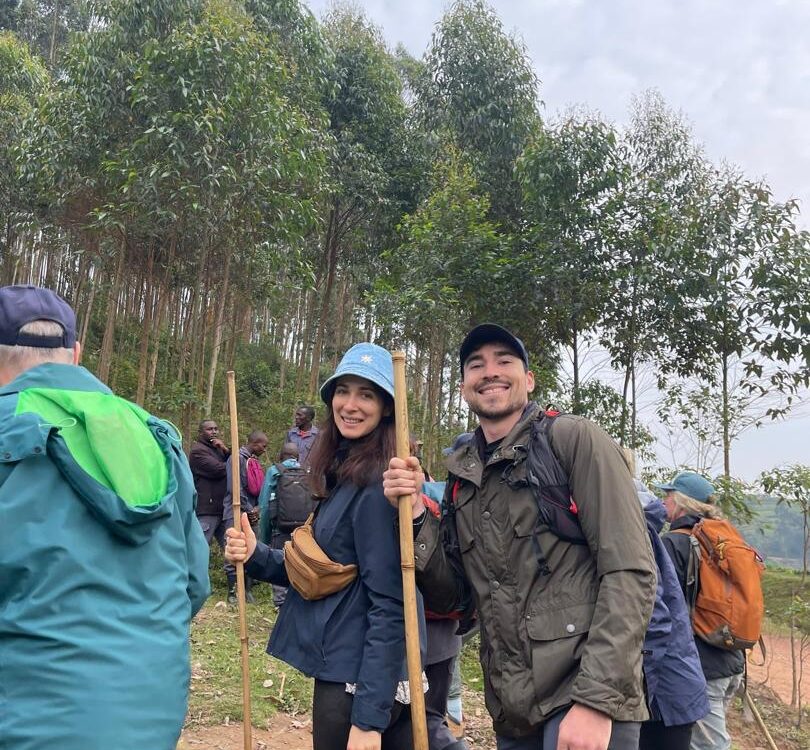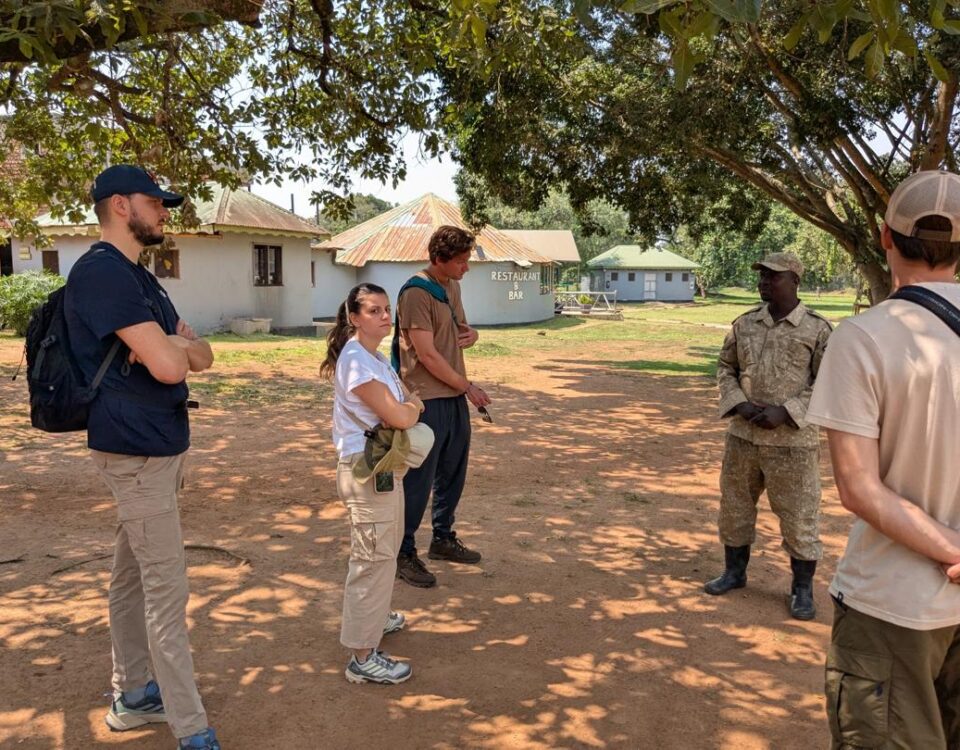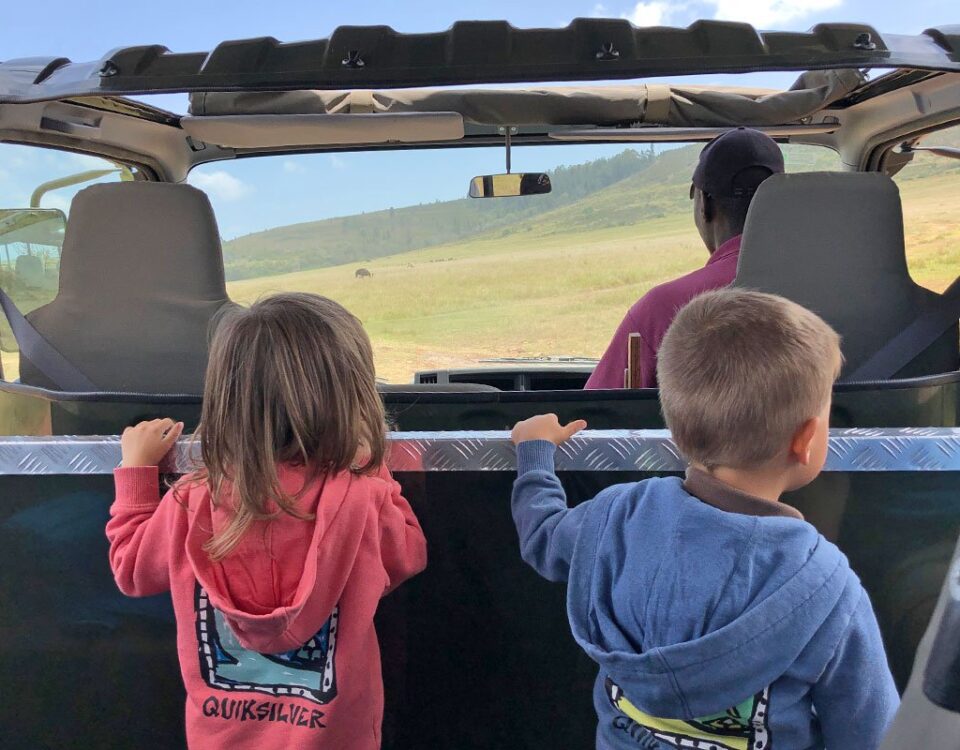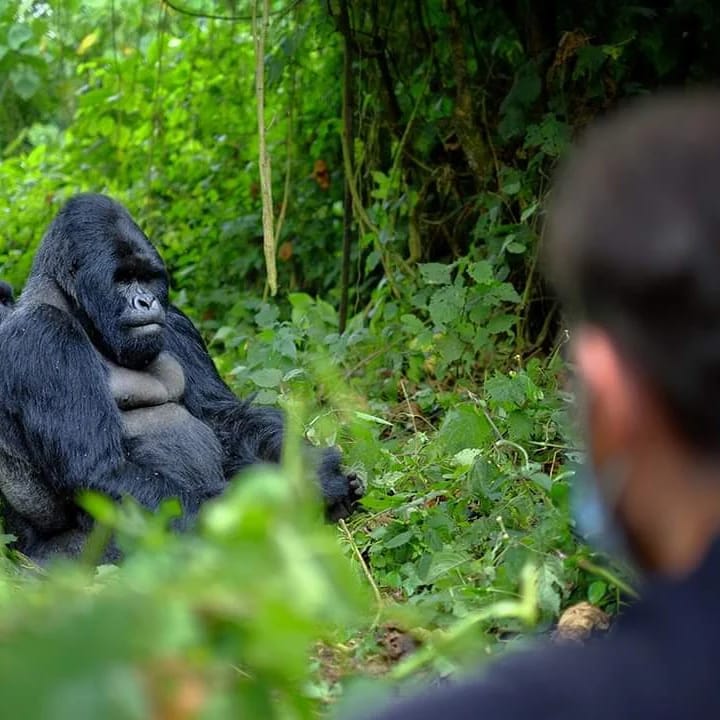
Are There Toilets Along the Uganda Gorilla Trekking Route?
April 23, 2025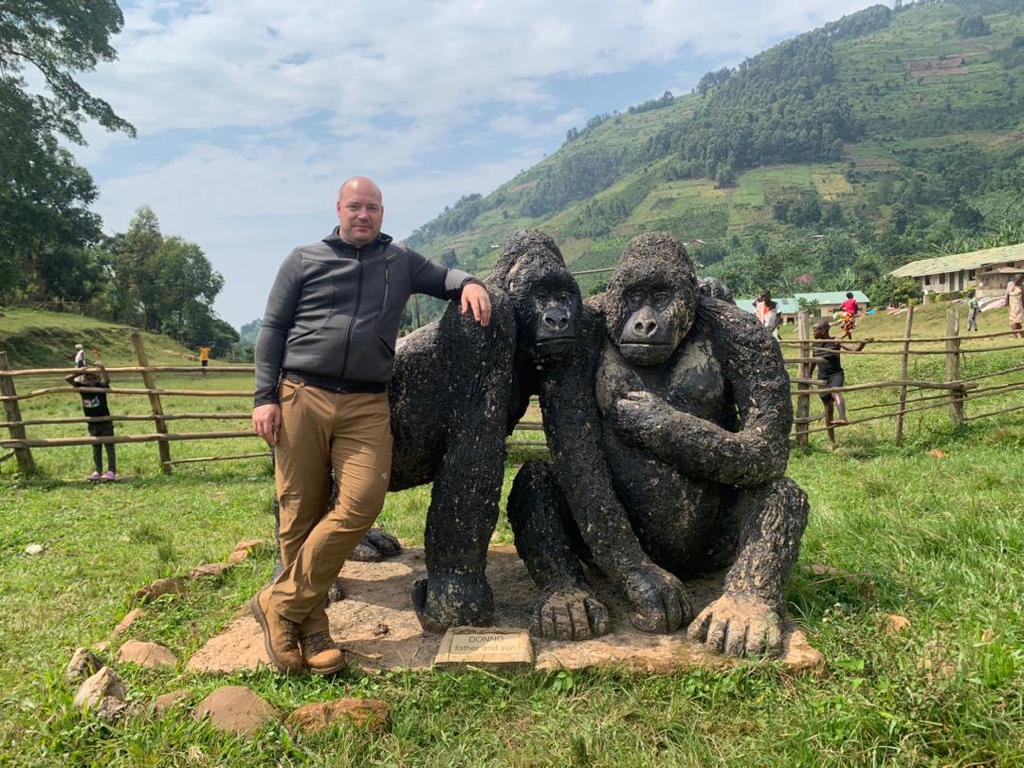
Is Uganda Gorilla Trekking Safe for Seniors?
April 23, 2025What Are the Health Risks Involved in Uganda Gorilla Trekking?
Gorilla trekking in Uganda is one of the most thrilling wildlife experiences in the world. Visitors journey deep into the lush forests of Bwindi Impenetrable Forest or Mgahinga Gorilla National Park to observe mountain gorillas in their natural habitat. But while the experience is awe-inspiring, it’s important to ask: What are the health risks involved in Uganda gorilla trekking? This key question is vital not only for protecting yourself as a traveler but also for safeguarding the critically endangered gorillas. Tubale Safaris Ltd, a reputable and registered Uganda tour operator, is here to explain the main health concerns, preventive tips, and how we help ensure a safe and fulfilling trekking experience for all.
Uganda Gorilla Trekking Safari Packages and Tours
- 3 Days Gorilla Habituation Safari
- 3 Days Gorilla Trekking Tour
- 3 Days Uganda Fly to Bwindi
- 5 Days Wildlife & Gorilla Safari
- 7 Days Uganda Gorilla Safari
- 8-Day Gorilla & Wildlife Tour
- 9 Days Best of Uganda Safari
- 5 Days Gorilla & Rafting Safari Uganda
- 6 Days Primates Safari Tour
- 10 Days Birding Tour Uganda
- 10 Days Uganda Wildlife Tour
- 12 Days Uganda Wildlife Tour
- 13 Days Pearl of Africa Tour
- 15 Days Uganda Safari
- 18 Days Uganda Safari
- 21 Days Birding Uganda Safari
- 24 Days Best of Uganda Tour
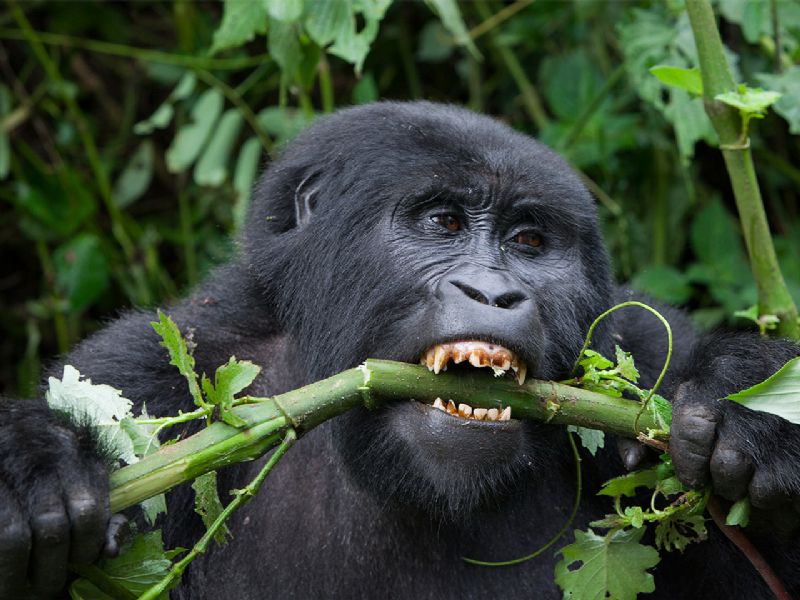
What Are the Health Risks Involved in Uganda Gorilla Trekking?
Personal Health Risks to Trekkers
Altitude, Physical Strain, and Trekking Injuries
One of the primary health risks involved in Uganda gorilla trekking is the physical exertion required. Treks can last between 2 to 8 hours and involve climbing steep, muddy trails through dense forest at high altitudes—typically over 2,000 meters (6,500 feet) above sea level. This can lead to altitude sickness in some individuals, causing headaches, dizziness, or shortness of breath. Additionally, muscle fatigue, sprains, or joint pain are common among those not used to hiking long distances.
Tropical Illnesses and Environmental Exposure
Trekkers are also exposed to potential tropical illnesses such as malaria, especially at lower elevations. Insect bites, contaminated water, and poor sanitation in remote areas can pose risks of gastrointestinal infections and skin irritations. Proper vaccination against diseases like Typhoid, Hepatitis A & B, and Tetanus, as well as taking antimalarial medication, can significantly reduce these health risks.
How Tubale Safaris Ltd Prepares You
At Tubale Safaris Ltd, we provide thorough health and safety briefings before every tour. We recommend you consult your doctor at least 4 to 6 weeks before travel and ensure your travel insurance covers medical evacuation. Our expert guides also carry first-aid kits, and we offer personalized advice based on your fitness level to help prepare you for the trek.
Risk of Disease Transmission to Mountain Gorillas
Gorillas Are Highly Susceptible to Human Illnesses
A less-discussed yet critical part of what are the health risks involved in Uganda gorilla trekking lies in the danger humans pose to gorillas. These majestic creatures share 98% of their DNA with us, making them extremely vulnerable to human-borne diseases such as influenza, the common cold, and respiratory infections. Even a mild cough or sneeze can be devastating for an entire gorilla family.
Strict Health Guidelines in Place
To protect the gorillas, Uganda Wildlife Authority (UWA) has strict rules in place. Trekkers must maintain a minimum distance of 7 meters (about 21 feet) from the gorillas. If a visitor shows signs of illness such as fever, sore throat, or cough, they may be denied access to the trek, with no refunds provided. This is especially important considering a gorilla trekking permit in Uganda costs US$800, and a gorilla habituation permit is US$1,500.
How Tubale Safaris Ltd Supports Conservation
Tubale Safaris Ltd strictly adheres to all UWA health and safety guidelines. We advise all clients to self-monitor their health and report any symptoms before the trek. Our goal is to help conserve gorilla populations while ensuring a responsible and rewarding experience for travelers. When you trek with us, you join a community that puts wildlife protection at the forefront.
Common Health Concerns in Forest Environments
Insect Bites, Allergens, and Forest Hazards
Gorilla trekking takes place in thick forest environments filled with insects, stinging plants, and unpredictable terrain. Bug bites, especially from mosquitoes and tsetse flies, can cause discomfort or even disease transmission if not properly managed. Allergic reactions to pollen or plants are also possible, especially for travelers with preexisting conditions like asthma or hay fever.
Water, Food, and Sanitation Issues
Access to clean water and food in remote trekking regions can be limited. Drinking untreated water or eating improperly stored meals can lead to traveler’s diarrhea or stomach infections. Additionally, hygiene facilities in some areas may not meet international standards, increasing the risk of bacterial and parasitic infections.
Preparation Tips from Tubale Safaris Ltd
We recommend that trekkers bring insect repellent, water purification tablets, antihistamines, and a personal first aid kit. Tubale Safaris Ltd partners with accommodations that maintain high hygiene standards and provide clean drinking water. Our professional guides are trained to handle health emergencies and will ensure your well-being throughout the trek. We also make dietary recommendations based on your preferences and medical history.
Safety Measures and Health Tips for a Risk-Free Experience
Travel Insurance, Vaccination, and Hydration
A crucial part of understanding what are the health risks involved in Uganda gorilla trekking is knowing how to minimize them. First, ensure you have comprehensive travel insurance that covers medical evacuation and cancellations. Keep your vaccinations up to date—especially Yellow Fever, which is required for entry into Uganda. It’s also essential to stay hydrated, carry energy snacks, and take frequent rest breaks during the trek.
Trekking Gear and Clothing Choices
Wearing the right gear can make a big difference in avoiding injuries or discomfort. Waterproof hiking boots with strong grip, long-sleeved shirts, and pants help protect against scratches, insect bites, and adverse weather. A walking stick is highly recommended to help with balance on uneven terrain.
Tubale Safaris Ltd’s Health & Safety Guarantee
We take pride in being a trusted and registered Ugandan tour operator. From providing a detailed pre-departure checklist to accompanying you with trained guides during the trek, we ensure that your experience is not just exciting but also safe. We handle everything—from securing your gorilla trekking permit or habituation experience to offering emergency contacts in case of health issues.
Conclusion: What Are the Health Risks Involved in Uganda Gorilla Trekking?
So, what are the health risks involved in Uganda gorilla trekking? They include personal physical challenges like altitude sickness and trekking fatigue, exposure to tropical diseases, risk of transmitting infections to the gorillas, and environmental hazards found in forested areas. While these risks are real, they can be effectively managed with proper preparation, guidance, and support.
By traveling with Tubale Safaris Ltd, you are choosing a reputable and registered Uganda tour operator that prioritizes your safety and the conservation of Uganda’s incredible biodiversity. Our team of experts is ready to guide you every step of the way—ensuring a health-conscious, memorable, and life-changing gorilla trekking experience in Uganda.
Contact Tubale Safaris Ltd today and let us help you trek safely into the heart of the wild.

